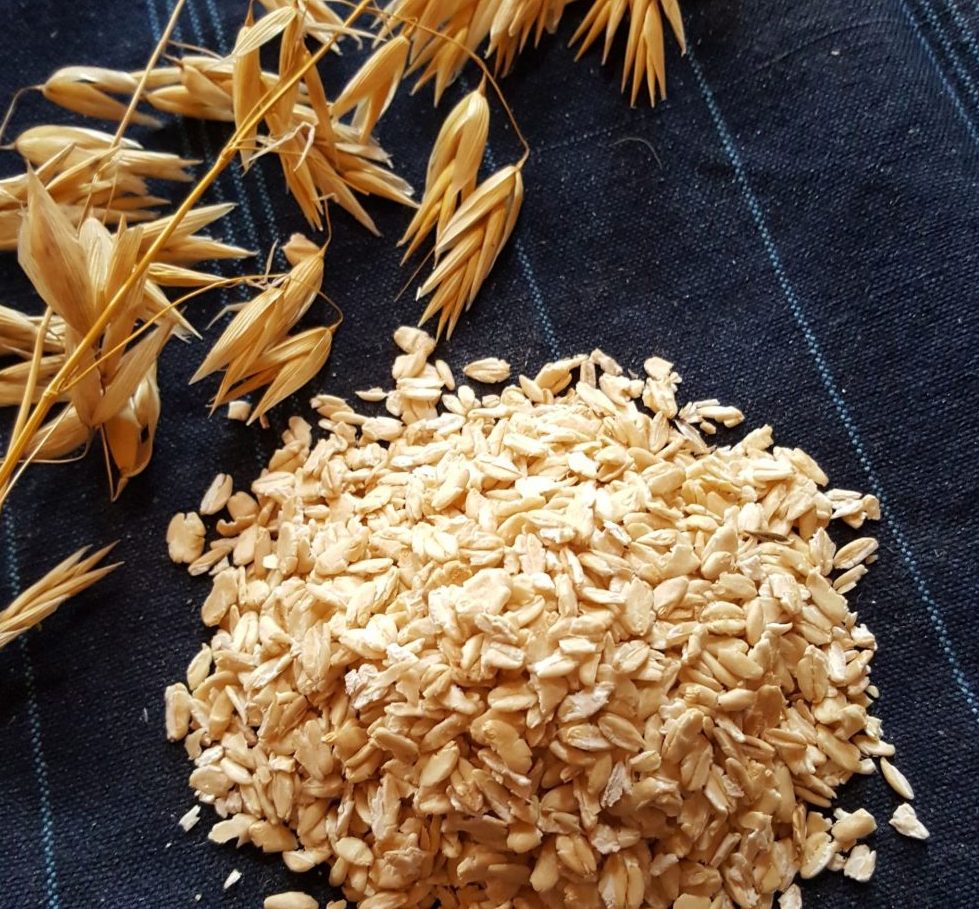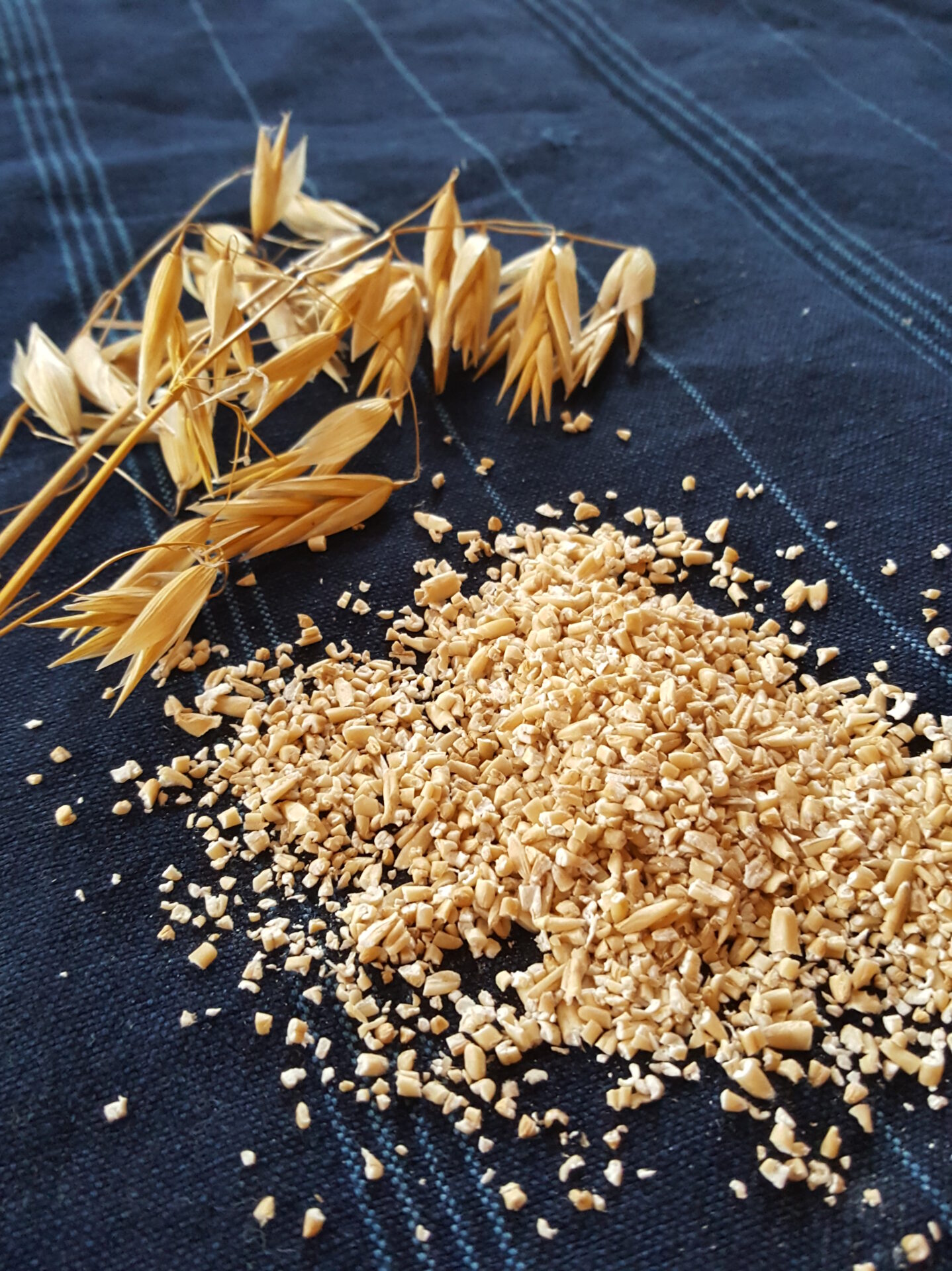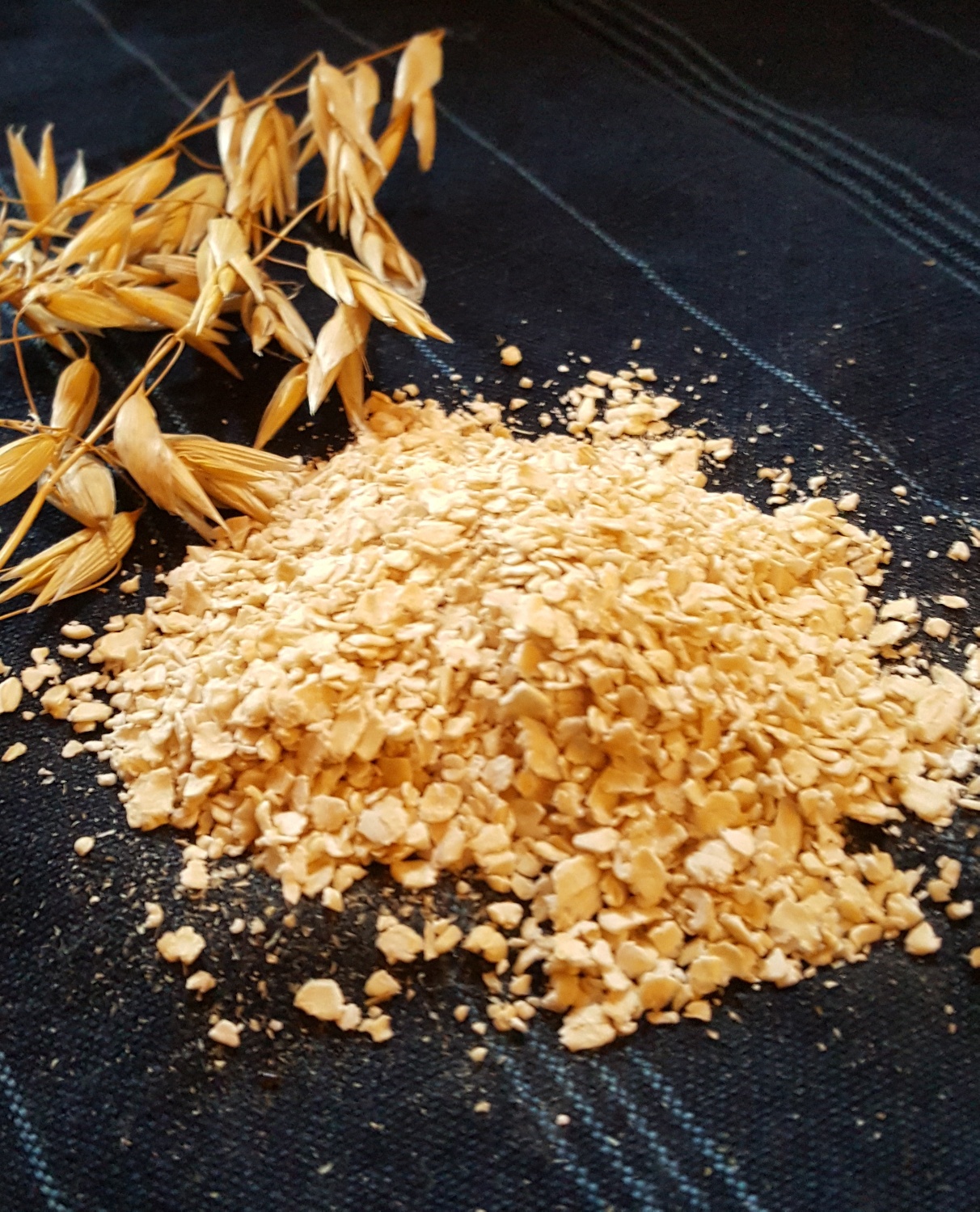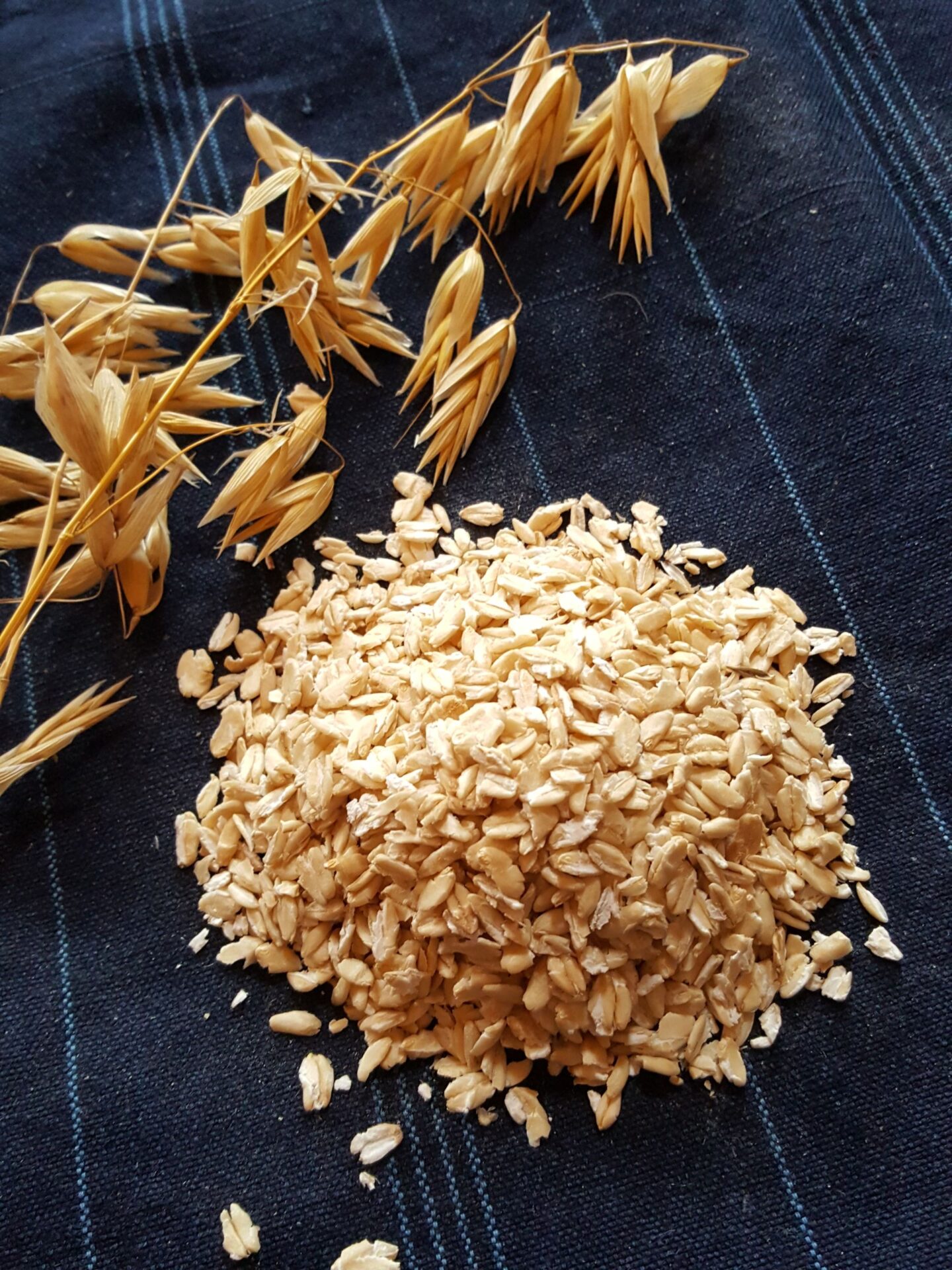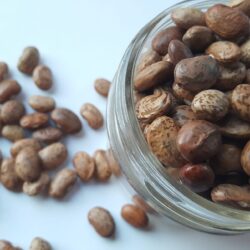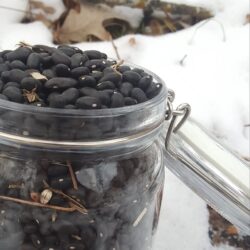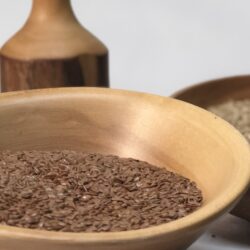Naked Oats (9kg/20lbs)
$38.00
Organic Naked Oats. Your choice of Rolled, Steel Cut, Quick Cooking, or Whole/Unmilled. Grown and milled on our own farm.
Organic
Gluten Free
For thousands of years, hulled oats were grown primarily to feed to horses, but naked oats were the grain of choice across Asia and Europe for milling into flakes. The higher protein levels, antioxidants, and nutty flavour of naked oats made them the top choice for porridge. But another factor was the processing: naked oats can be milled and rolled into flakes without steaming, whereas conventional oats need to be steamed or roasted in order to remove the hull and to prevent them from going rancid.
But sadly, naked oats fell out of vogue in the 1800s, and factors like higher yields and durability in transit became more important, and industrial processing because easier. Over 95% of oats grown in North America were fed to livestock, so it was easier to grow just one type of oat and scalp off a few to mill for human consumption. Naked oats were abandoned.
But a resurgence of interest in reducing our carbon footprint (steam treating oats is an energy-intensive process!) and a good ol’fashioned preference for taste over a long shelf-life, has led to a few farms and mills, scattered haphazardly around the world, still using naked oats. We’re proud to be one of them!
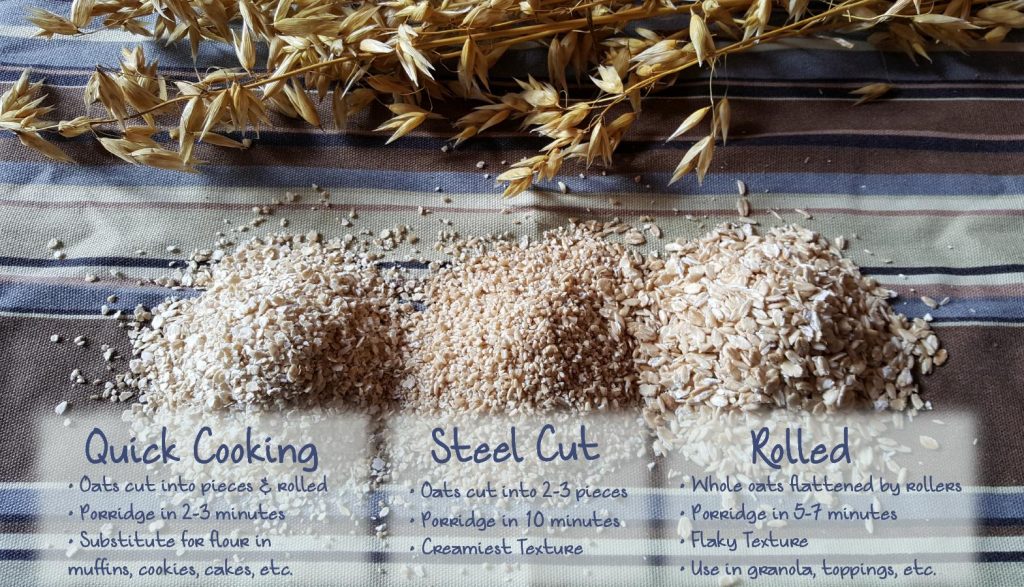
Rolled, Steel Cut or Quick Cooking? What’s the difference anyways?
Our traditional large-flake rolled oats are produced by flattening the oat groats between two large rollers, which exposes the inside of the oat groat and allows them to cook and soften quickly. This makes them great for porridge, baking, and granolas, and offer a texture that is versatile for a huge variety of recipes. Rolled oats are our super-star.
Steel Cut Oats have the same nutritional value and benefits, but are produced by cutting the oat groat into two or three pieces with steel blades rather then flattening them with rollers. The result is an oat with a unique texture that makes a wonderful slow cooking porridge, smooth and creamy while still retaining some of the original ‘crunch’ of a minimally processed oat. But not so great for baking with…
Our Quick Cooking Oats are milled by first chopping our oats into small pieces (steel cut) and then rolling them as thin as possible to expose more surface area, which allows them to cook quicker and bind together easier when baking. Unlike ‘instant’ or conventionally milled quick oats, these oats are not steam processed, and the nutritional value is not altered in any way. We like to use quick cooking oats in muffins, breads, cookies, pancakes and squares. But they take a bit of extra caution, because exposing more of the inner germ exposes more of the oat to moisture and oxygen, which can lead to rancidity more quickly. For that reason, our quick oats do have a shorter shelf life than our regular oats. Transferring to an air-tight container is recommended for storage longer than 2-3 months.
Whole oats are just whole, unmilled oat groats. They can be used as a rice substitute, or milled fresh at home.
Storage Recommendations:
Because our Naked Oats are not heat treated in the milling process, they are more sensitive to moisture in storage. Under certain conditions (usually high moisture levels), a bitter flavour can develop as the oats oxidize. To ensure that you have the freshest and highest quality product possible, we recommend using our product within 1 year of milling (this date is printed on the bottom of each package), or within 3 months of opening the package. If you will be using the oats for longer than about 3 months, we recommend transferring them to an air-tight container to help reducing exposure to oxygen and humidity. Consider naked oats to be a small step closer to the “fresh produce” category than the “canned goods” category.
Another oddity – our oats do not play nicely with coconut oil. For some unknown reason, there is a strange reaction that often occurs when naked oats and coconut oil are combined. This doesn’t seem to happen with regular oats, so perhaps is because of the lack of heat processing, or perhaps because of the higher protein content of naked oats. We haven’t entirely figured it out yet, but have been doing some shelf-life testing to help us figure out who is bullying who, and whether we can help them sort out their differences and live happily together. But in the meantime, give them some space…

| Weight | 9100 g |
|---|---|
| What kind of oats do you want? | Rolled, Steel Cut, Quick Cooking, Whole/Unmilled |
